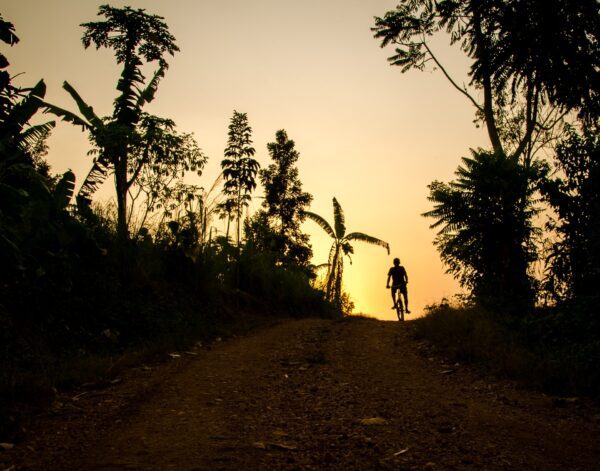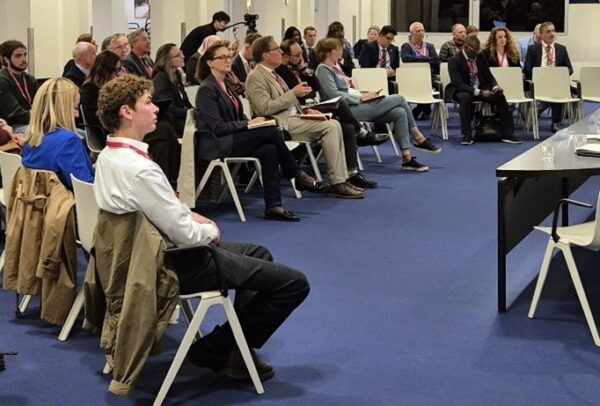Advancing Climate Justice through Inclusive Decision-Making: Global South and Indigenous Perspectives
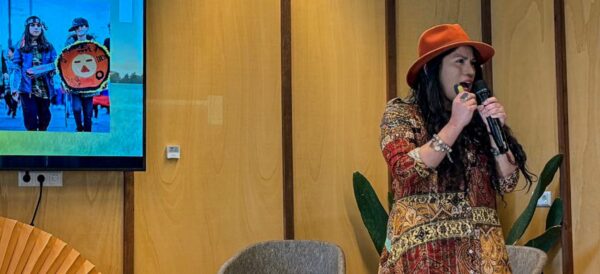
25 July, 2025
On 23 July 2025, the International Court of Justice (ICJ) issued a groundbreaking advisory opinion: states are legally obligated to protect the climate, and failure to do so may lead to legal consequences, including reparations.
The ICJ’s decision didn’t emerge from the halls of government or a courtroom alone. It started years ago in a classroom at the University of the South Pacific, where a group of students posed a simple yet world-shifting question: What are states legally required to do to protect the climate? And what happens if they don’t?
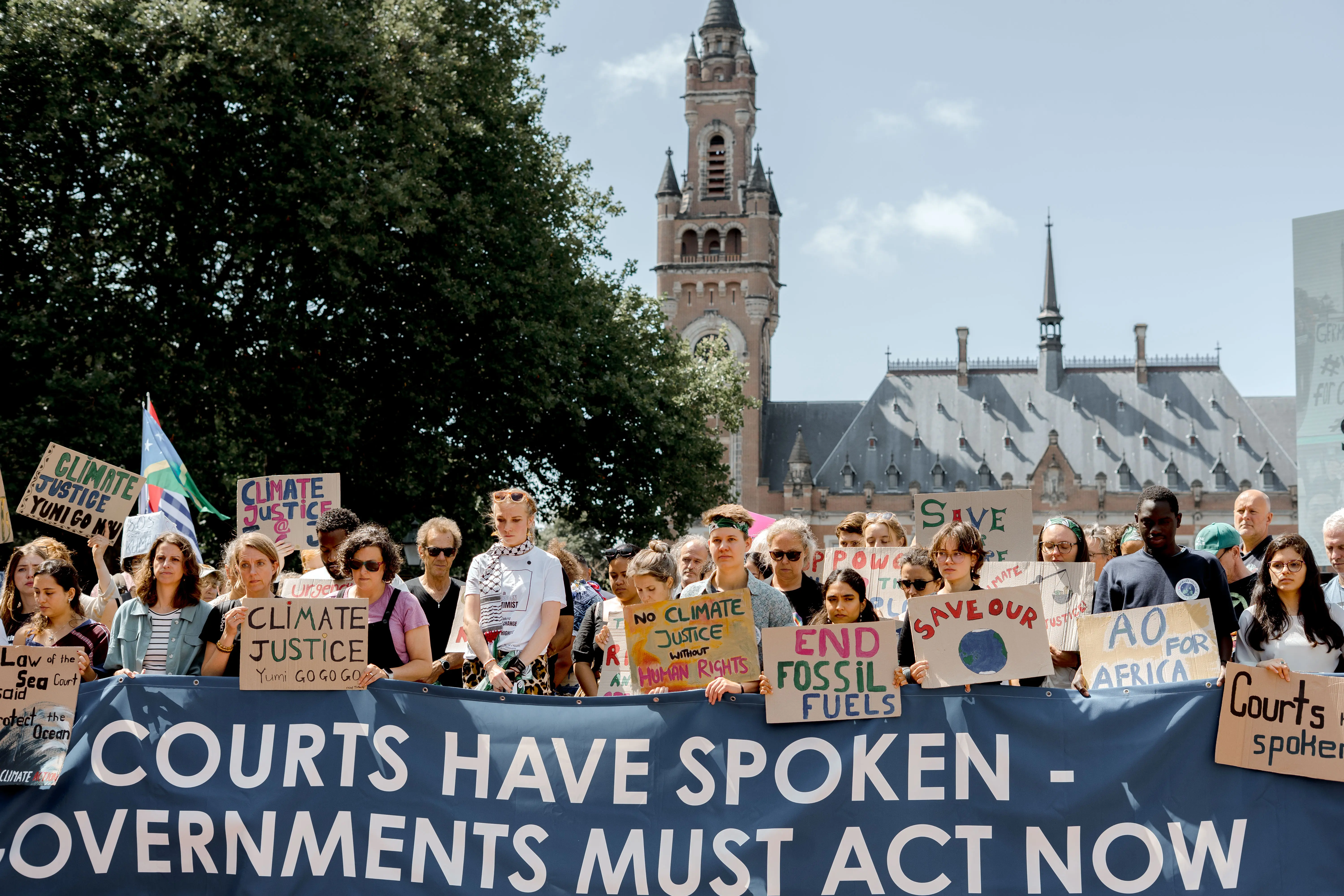
Copyright: Sacha Verheij/The Hague Humanity Hub
That question echoed through global institutions, culminating in this historic moment at the Peace Palace in The Hague. It reflects not only the power of international law, but also the determination of young people and frontline communities to hold the world’s most powerful actors accountable.
In 2021, Vanuatu, a Pacific Island state facing existential threats from climate breakdown, took the students’ call to the global stage. Backed by a coalition of civil society groups, including World’s Youth for Climate Justice (WYCJ), the country lobbied the UN General Assembly, which adopted a resolution in March 2023 requesting the ICJ’s opinion. The result was the largest case in the Court’s history, with 91 written submissions and 97 participating states.
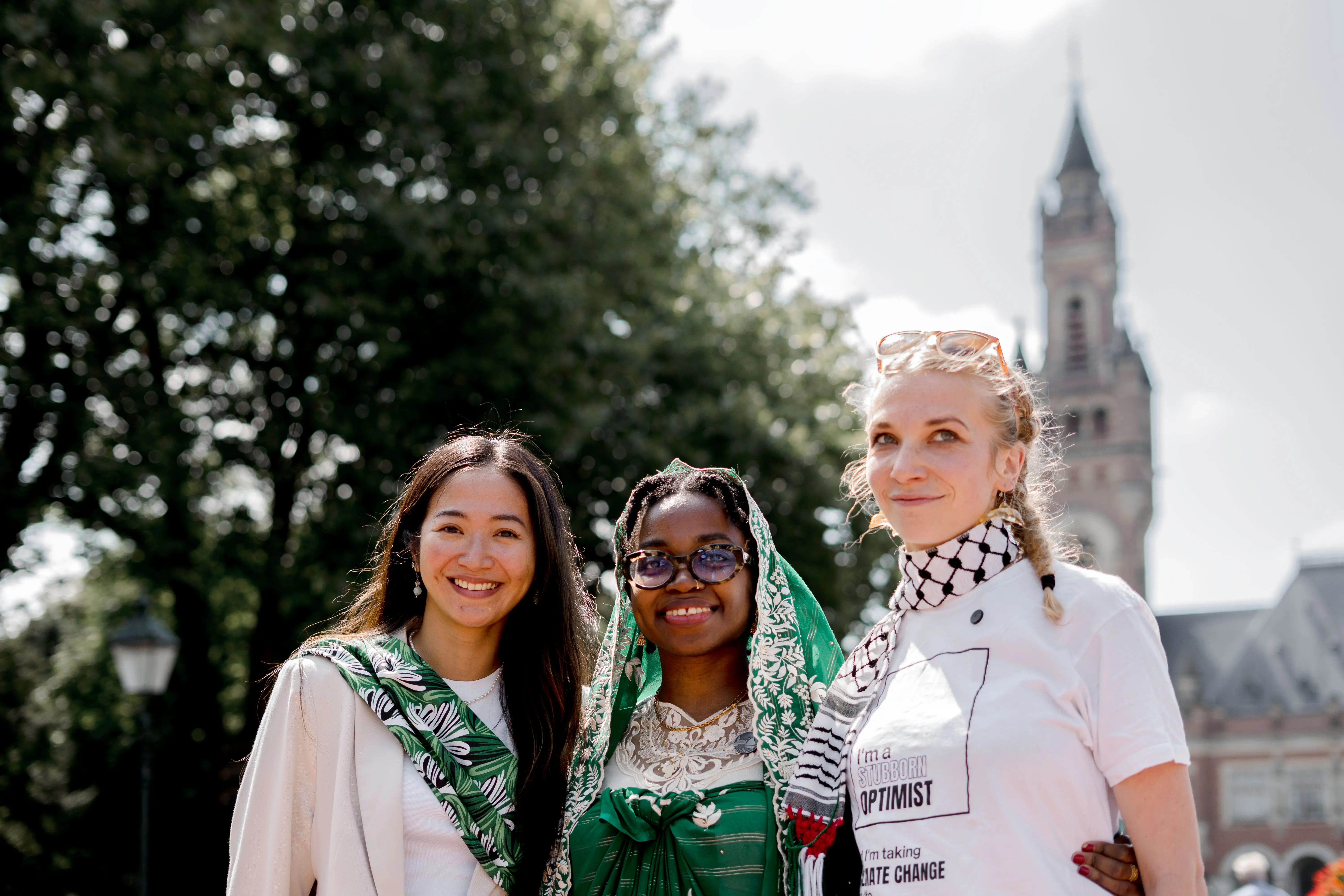
Nicole Ann Ponce, Samira Ben Ali, Jule Schnakenberg Copyright: Sacha Verheij/The Hague Humanity Hub
In a unanimous opinion, the ICJ made clear that:
The Court explicitly linked climate protection to human rights, affirming that a clean, healthy, and sustainable environment is essential for the right to life, health, food, housing, and water.
“The human right to a clean, healthy and sustainable environment is essential for the enjoyment of other human rights.” – Judge Yuji Iwasawa
This ruling is a milestone but not a finish line. It offers legal leverage and renewed momentum, as well as a clear signal: climate harm is a matter of justice, not just emissions.
Interested in reading more about the people behind this movement? Our public engagement programme Just Peace interviewed three pioneers from World’s Youth for Climate Justice: Jule Schnakenberg, Co-Founder; Nicole Ponce, Global Advocacy Lead; and Samira Ben Ali, Global Campaigns Lead.
Read interview on Just Peace
As home to the ICJ, The Hague played a central role in hosting this historic moment. Here at The Hague Humanity Hub, we are building a Climate Justice Community of professionals, activists, researchers, and policymakers. Our mission is to connect people and ideas, create space for collaboration, and amplify underrepresented voices in climate conversation.
Want to stay informed or get involved? Explore the Climate Justice Community, sign up for the newsletter, or get in touch.

